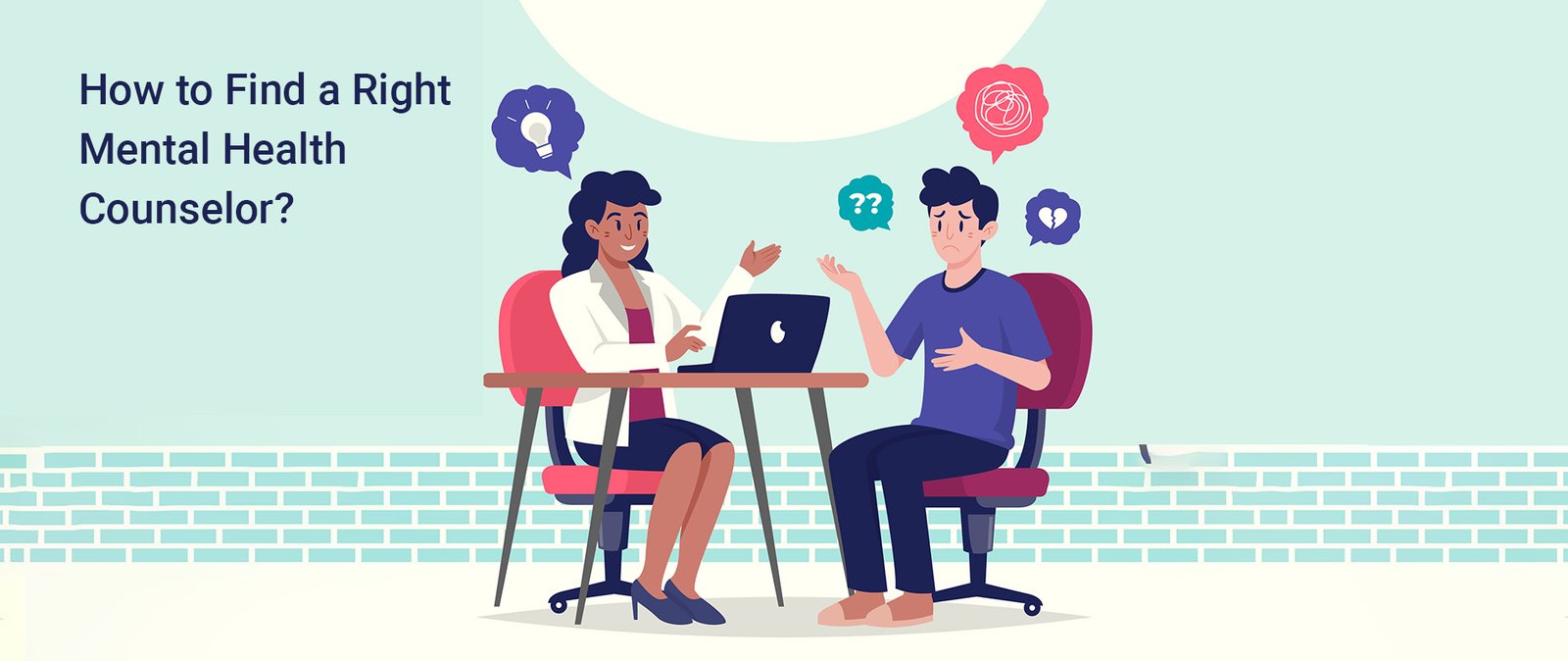Table of Contents
How to Prepare for Couples Counseling?
A lot of couples do not opt for couples counseling because one of the partners doesn’t want to go for it. Couples counseling is sometimes viewed as a weakness, where couples or one of the partners may feel that going for counseling will not help because everything is fine and the issues can be solved by themselves, or the thought of ‘we know our married life better than anyone else’, ‘we do not need a stranger to tell us what to do to make things better in our married lives’ can pop up. This could happen because the idea of couples counseling could be portrayed to them in a slightly wrong way.
Counseling in general is not where the counselor asks the clients to do something adamantly. It is a process where the counselor takes you on a journey that helps you uncover the solution on your own. So, the first step in preparing for couples counseling is to tell yourself that opting for it isn’t a sign of weakness or a sign that you cannot handle the issues in your relationship. Rather it means that you want to know where the issues are coming from and what you can do to resolve it in your relationship. Opting for couples counseling is a sign that you want to work on your relationship and that it is important for you!
10 Ways to Get Ready for Your First Couples Counseling Session
Now that we know that mutually opting for counseling is the biggest and the most important first step in preparing for couples counseling.
Let’s see 10 ways to get ready for your first couples counseling session:
1. Searching The Right Counselor:
Once you and your partner have decided to seek couples counseling, the next step for you two would be finding the counselor. And not just any counselor, but the one with whom you both would feel comfortable while talking and sharing. It is important to check your comfort level, so you may want to discuss following points with each other to come to a decision- gender of the counselor, qualifications of the counselor, preference to online or in-person counseling, area in which the counselor has their office (for you to commute there every week), charges of the counselor etc. It may become difficult to check all the criteria in the list to find the counselor, so make the list according to your priority and shortlist just 2 important criteria, by discussing mutually, and then start your search.
Your search may become easier if you ask for references of counselor from your friends/ family members. But if you want to keep it completely confidential then you can start your search online too!
2. Mark Your Calendars
Once you find the counselor with whom you would like to start the counseling sessions, next step would be to book the session. You may contact the counselor or their office and check their session booking system. Once you get the appointment, make sure that you and your partner mark that date on your calendars, set a reminder. It is a fast-paced world with tons of work and responsibilities that everybody has to shoulder. It may happen that because of work or other things, you may forget your appointment and then you may have to wait for another couple of days to make a new one. To avoid this, set reminders for all your sessions in advance.
3. Discuss About Your Goals In Advance
Before first session of therapy, have a discussion between you and your partner regarding the expectations or the goals that you two wish to achieve through therapy. You can ask each other questions like-
- Where do you both stand in the relationship currently and where do you want to be in future with help of therapy?
- How do you want to grow as a couple in this relationship?
- How do you manage the conflicts currently and how would you like to manage them instead of current patterns?
- Where do you stand currently when it comes to intimacy and boundaries?
You can add more questions related to the issues that you are facing in your romantic relationship and also write down the goal that you wish to reach post therapy.
4. Make A List
While you are in the session, it so happens that in the flow of talking, you may miss or forget to talk about other important points too which you may remember once you reach home! Hence it is recommended that you and your partner make a list of points, individually, that you wish to discuss with your therapist. Carry this list to your first session and later on you both can keep adding points that come to your mind as therapy progresses.
5. Keep An Open Mind
Going to therapy can feel overwhelming. Opening up to a stranger about private information of your romantic relationship can seem a bit intimidating. It is okay to not tell the counselor everything in the first session. But keep an open mind about counseling, trust the process and then you will feel more secure and you will also start noticing the change that you wished to see. Always keep in mind, that the counselor knows their professional ethics and your information will be completely confidential and you will get a safe space to share anything and everything!
6. It’s Okay To Be Nervous
If pre-marital counseling is going to be your first experience with counseling or therapy, then we understand that you may get nervous when it comes to you attending the first few sessions. Therapy can feel daunting at first. Some of you may know what you want to work on with the help of therapy and some of you may not know where to start from or what areas to work on and both these situations may cause anxiety. But do not take a step back because of your nervousness or anxiety because these feelings could be a sign of you opening up to yourself and working on yourself to be better. Give yourself some time to get acquainted with the process and see how the anxiety or nervousness calms down on its own!
7. Get Ready To Share Personal History
Usually, the first session of counseling is focused on clients sharing what the issues are that they are facing. In couples counseling, the counselor will give both the individuals a chance to talk about the issues, from their individual perspectives, to get to know what has happened and where both of them stand in the present. Some of the counselors may start with case-history taking in the first session itself, some may take it in the second session. Case-history taking helps the counselor to understand how the clients are individually and also how they are as a couple. This helps the therapist to plan the further sessions.
8. Be Honest
The entire process of therapy will be helpful when you decide to be vulnerable and honest. It helps because it shows that no matter how hard or dark the past or the present is you are willing to work on it and bring in the change to improve the areas which are causing the distress.
You are also encouraged to be honest to the counselor about their approach. If at any point you feel that therapy isn’t leading where you expected it to go or progress, or that the counselor’s approach for your case isn’t helping you much, then please communicate it with your counselor.
9. Know About The Process
If you are someone who is going in for therapy for the first time, then it could be that you may not know how the process of counseling takes place or how the process works. At such times, ask your counselor about it. It will help you to understand how the counselor can help you during the sessions, your responsibilities and rights as clients and much more. Knowing about the process will help you to build trust on it and then it will work wonders!
10. Commit To The Process
Last but not the least, counseling isn’t one session thing. A lot of clients drop out of therapy after the first session because they expect that only one session is enough. But counseling is a process that takes a few sessions and some time for you to see the changes, so commit to the process. Do not leave the process on your own without consulting your counselor. Own the responsibility of completing the process and keep working on yourself!
How To Get The Most Out Of Your Marriage Counseling Sessions?
Being prepared and deciding to start couples counseling is the first and the biggest step for getting the most out of marital or couples counseling. Being consistent and serious about therapy is equally important. Just showing up for therapy won’t work, you have to be willing to work on yourself and do the homework that the counselor asks you to do. In short, if you want to reap the benefits of counseling, then religiously follow the process.
Having an open mind will help you the most. Sometimes you may not want to do a few things asked by your counselor, but know that it is for your own good. So, trust the process!
Lastly, commit to the process, only and only then can you make the most out of the counseling process for your marriage or your relationship!
The Bottom Line:
Going in for counseling doesn’t mean you are a weak individual, or in this case it doesn’t mean that you are a failure because your marriage or relationship has a few issues and you have to seek counseling. Changing the perspective will truly help more couples to come out and seek counseling, so go for it!
One can have mixed emotions when it comes to attending the first ever counseling session, so prepare yourself by reading the points mentioned above and go in for the journey with an open mind to make your romantic relationship or marital life more blissful!
Looking For Couples Counseling?
Are you someone who is thinking of opting for marital or relationship counseling? Are you someone who is skeptical about going in for counseling and want to discuss about the same with a professional? Or are you someone who has decided to opt counseling for your marital or relationship issues but don’t know whom to approach or how to start the process? Then, worry not! We at WAITT provide couples counseling and provide you with the safe space and bias free platform to unveil the issues that you and your partner are facing. Our counselors are the experts in this field and will guide you with a practical approach.
How to book a session? It is pretty easy- jump onto online form and follow the steps mentioned on the page to book a session!









